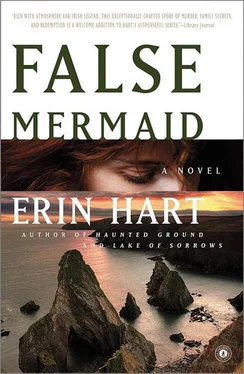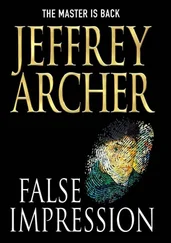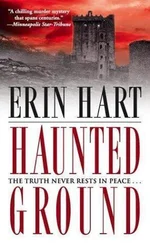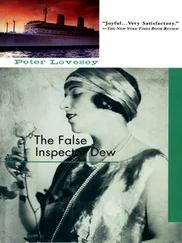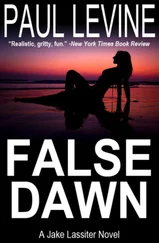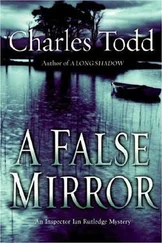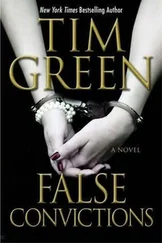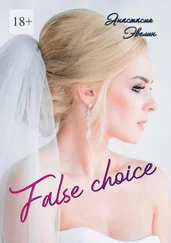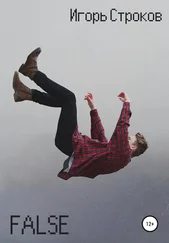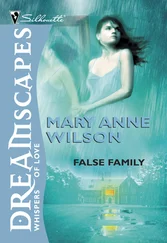“I might.”
“We’d need a known sample to run a comparison.”
“I’ll see what I can do.”
He hung up the phone. Another round of evidence pointing to Miranda Staunton. There was also her direct link with Natalie Russo, through the rowing club. A strong rower like Miranda must have good upper body strength—enough to render a human face unrecognizable? And where was he going to get a known sample from Miranda Staunton? Frank let his memory travel back to the last time he’d seen her—in the rowing club locker room. He picked up the phone.
When Sarah Cates met him at the door of the boathouse thirty minutes later, she was dressed not in workout gear, as he’d expected, but in a dark blue-green suit that set off the color of her eyes. “Welcome back, Detective. What can I do for you this time?”
“I need to get into the women’s locker room again.”
Sarah Cates led the way, again making sure the coast was clear before bringing Frank inside the locker room. He made a beeline for the bench where he’d seen Miranda lacing up those odd-looking shoes. Sliding an evidence envelope from his pocket, he opened his penknife and crouched down beside the bench. There it was, the wad of chewing gum Miranda had stuck on the underside of the plank two days ago. He prized the gum loose and let it drop into the envelope.
Sarah Cates spoke behind him. “I have a question, when you’re finished there.”
“Done,” Frank said, climbing to his feet. “What’s your question?”
“You asked me before if anyone might have resented Natalie’s ability—”
“You said you couldn’t think of anyone.”
“But the question got me thinking. The finals were screwy at one of our big races that year. There was some controversy about handicapping. I don’t even remember what the disagreement was about; I just know the person who took second thought she should have won. The judges’ decision was final. She was pretty steamed—”
“Who are we talking about?”
“You asked me if I knew her last time you were here—Miranda Staunton.”
“You mentioned that she joined the club right after college.”
“And we were lucky to have her. Galliard had a great rowing program—really top class.”
At six-thirty, Frank Cordova stood looking down into the casket at his brother’s face. Composed, expressionless—completely unlike the way it had been when he was alive. Frank touched Chago’s cheek, knowing it would be cold, but he was surprised nonetheless. Like a wax figure, a puppet. Not the real Chago. He knew Veronica and Luis were worried that he might lose it again, but he knew that wouldn’t happen. Chago was beyond anyone’s help now. He wished he could believe what Veronica said, that Chago was with their mother in heaven now, that there was a reward for those who had suffered, but he could not believe it. He had tried.
Frank turned away and sat down in the back row of chairs, watching his sister greet the mourners at the door. She saw him sitting, and came to rest her feet beside him. As a boy, he had thought her the most beautiful of his sisters, and she still was. A little extra bulk around the middle now proclaimed her age, but Veronica’s hands and feet had always been small and delicate, and her face remained as lovely as ever. He could see the worry in her eyes.
“I’m all right, Noni. I won’t make any trouble.”
“You know that’s not what I’m worried about, Paco.” She put an arm around him and squeezed his hand. “We never knew it was so bad for you and Chago, I swear. We never would have left, Mila and Luisa and I, but we needed those jobs at the luggage factory up here. We didn’t know how bad things were back home. Mami always wanted to bring you here, you and Chago, to have a better life, I know she did, but she couldn’t leave Papi. She knew he had the spirit sickness. She even brought in the healer, the curandero —”
“The old man in white? I thought he came for Chago.”
“No, for Papi. You were too young to understand, Paco. We didn’t know how much you would remember, how much of it you or Chago would even understand. He didn’t know what he was doing, Paco, it was the sickness inside him, the spirit sickness. He never would have hurt Mami like that, I know.” She laid a hand on his chest. “You may look like him, Paco, but you are not Papi. Do you hear me? You must never worry about that.”
He looked up at Chago’s composed face in the casket, and a kind of effervescence began to rise up inside him. Everything in his life up to now had been part of a confusing dream. Now that Chago was gone, he could begin to wash off the dust, to unwind the jagged wire that had lashed them together all these years. Veronica’s voice broke in beside him. “Paco, your phone is buzzing.”
He pulled it out, and stared at the unfamiliar number. “I’m sorry, Noni. I have to take this—”
“Go,” she said. “Chago knows you love him. Go.”
Frank stepped out onto the veranda. As he closed the door behind him, he thought he glimpsed a figure in a blue-green suit at the front door of the funeral home. He pressed the phone to his ear. “Frank Cordova.”
“Detective Cordova? Gordon MacLeish, Maine State Police—retired. I heard you were looking for information about an old case of mine.”
“That’s right. The Nash murders.”
“How much do you know about the case?”
“Not a lot, just what was in the papers—that the Nashes were killed on board their boat, and the son’s friend confessed to it—”
“That’s right—Jesse Benoit. All the physical evidence pointed to him—”
Frank sensed a hesitation. “But?”
“Well, Jesse never gave any reason for the murders. After he was sent down to Augusta—that’s our state mental hospital—his mother came to me and claimed he couldn’t have planned and carried out a double murder, not on his own. She said he was her son and she loved him, but he was easily led. She thought Tripp Nash put him up to it, planned the whole thing.”
“How did she figure?”
“After he went down to Augusta, Jesse told his mother why he’d killed the Nashes. He said it was for Tripp. Years before, Harris Nash had discovered the two of them fooling around with makeup, trying on Connie Nash’s clothes. And according to Jesse, Nash threatened Tripp if the boy didn’t perform certain… services for him. Jesse claimed Connie knew, and did nothing, just kept herself medicated with booze and tried not to think about it. Jesse’s mother said her kid couldn’t stand seeing his friend used like that any longer.”
“Why hadn’t he said anything earlier?”
“He said Tripp begged him not to tell anyone about their little dress-up adventures. Jesse’s mother claimed that he had never lied. She said he might hear voices, or think he was a bird sometimes, but that didn’t mean he wasn’t telling the truth. I believed her, but before I could arrange to talk to Jesse, he’d managed to hang himself from one of the windows in his room. I went back to the Nash kid. He swore up and down there’d never been any cross-dressing or sexual abuse, that Jesse must have made the whole thing up.”
“And nobody but himself left to argue.”
“Exactly. It smelled rotten, but we didn’t have a scrap of physical evidence to tie Tripp Nash to the murders. I kept at him, tried to wear him down, see if he wouldn’t slip somewhere. After about six months, he said he felt like he could trust me.” Frank could hear MacLeish shaking his head, remembering.
“What did he tell you?”
“That he and Jesse had been best friends since they were kids, but in the past year, Jesse had started to ‘act strange.’ That was the way he put it. When I asked for examples, he said Jesse got jealous if he talked about any of the girls he’d met at boarding school. That made him uncomfortable, so he’d tried to ease things off, but that just made the situation worse.”
Читать дальше
